Training on Basic and Advanced Molecular Techniques Conducted
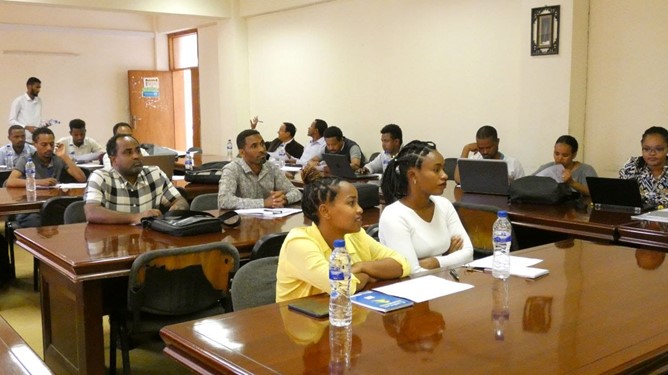
Haramaya University, in collaboration with Ghent University, conducted a five-day training that focused on the International Molecular Biology Lab (MoBiLab) from March 11-15, 2024 at Haramaya University Main Campus.
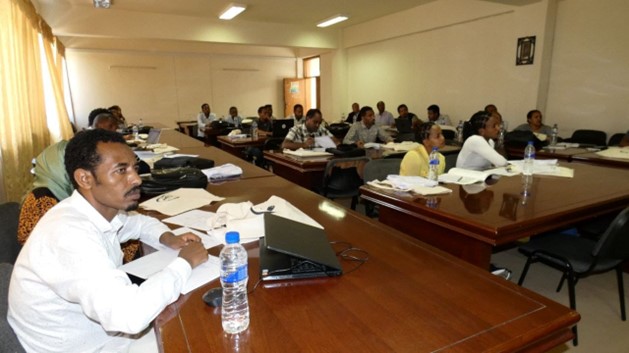
The MoBiLab project is designed to address the scarcity of accessible molecular biology training in Sub-Saharan Africa (SSA). The training was a collaborative effort between Haramaya University and Ghent University, Belgium, to equip participants with essential molecular techniques and soft skills to advance their research careers.
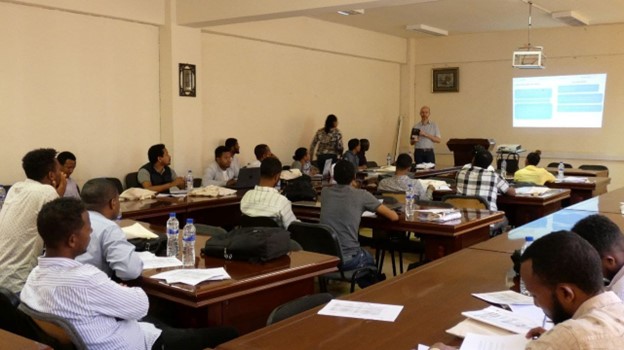
The training was provided by a team led by Drs. Marc Heijde from Ghent University caters to participants from various faculties, including the CAES (School of Plant Sciences, and School of Animal and Range Sciences), the College of Natural Sciences (Department of Biology and Department of Chemistry), the College of Veterinary Medicine, and the College of Health Sciences. This comprehensive approach aims to meet the unique needs and interests of each field, promoting interdisciplinary collaboration and innovation.
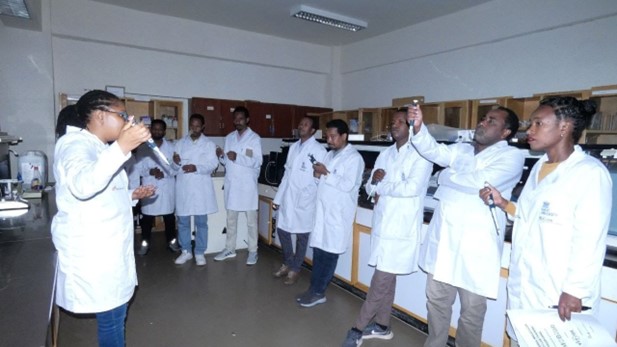
A total of 25 trainees drawn from academic staff, laboratory technicians, and postgraduate students participated in the training by ensuring gender diversity among the participants and fostering a learning environment that encourages collaboration, knowledge sharing, and inclusivity.
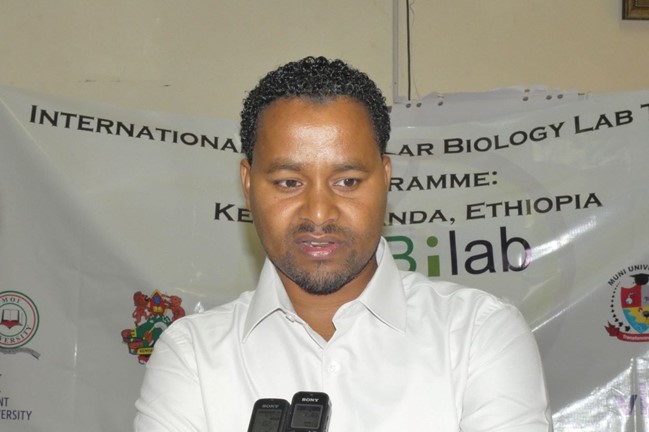
Dr. Abdi Mohammed, the Co-PI of the MoBiLaB Project at Haramaya University and also the Vice President of Administration and Development of HU, announced that this molecular biology-focused training program was organized by six higher education institutions from Kenya (Kenyatta and Moi University), Uganda (Makerere and Muni University), and Ethiopia (Addis Ababa and Haramaya University). The International Training Program received funding from VlIR-UOS and was coordinated by the International Plant Biotechnology Outreach.
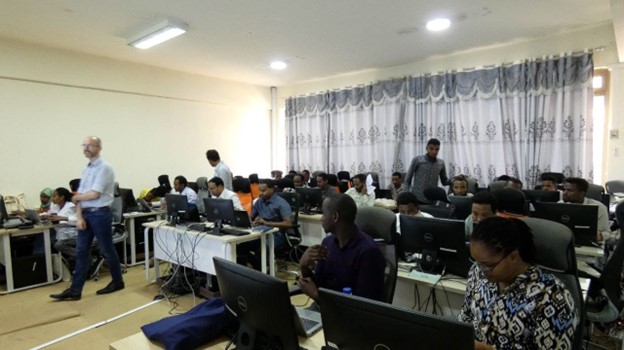
Dr. Abdi highlighted the long-standing collaboration between Ghent and Haramaya universities, which was interrupted a few years ago for reasons not disclosed. He expressed the need to rejuvenate and maintain this partnership, exploring mutual opportunities.
Dr. Abdi Mohammed said that the training enabled the teachers and researchers working on the molecular biology laboratory program at our university to strengthen their knowledge and skills.
Dr. Abdi added that the training was given by highly knowledgeable and experienced trainers with the help of modern technology equipment and that the trainees conduct research that is accepted at the international level, which will help the society deal with food shortages by identifying high-yielding food crops.
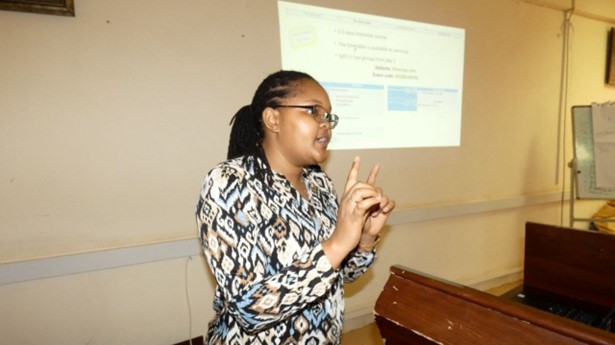
Miss Grace Makumi, the project manager of the International Molecular Biology Laboratory (MoBiLab) project, said the project has six partner countries (Kenyatta University, Moi University from Kenya, Haramaya, Addis Ababa University from Ethiopia, and Makerere University, Muni University from Uganda.
It was underlined that it is crucial to provide teaching staff with practical molecular skills to enable them to effectively impart these skills to their students. The field of molecular biology is rapidly evolving, with experiments now being conducted in shorter durations. Acquiring molecular skills is essential for students to keep pace with research developments in more advanced countries, it was announced.
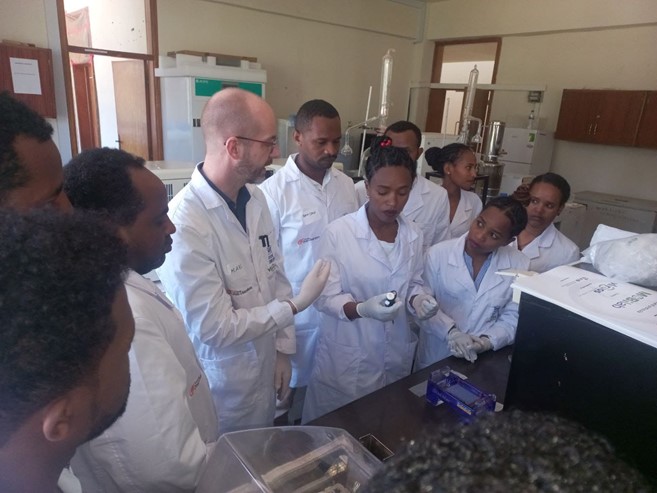
The project consists of two phases: the initial phase, which involved conducting the basic molecular course, has just concluded at Haramaya University. 25 staff members were successfully trained during this phase. These staff members will now spearhead a roll-out program, where they will train 10 of their students in the basics of molecular biology. The second phase will focus on the advanced course in molecular biology.
The trainees expressed the importance of the training and practiced well. The materials prepared/availed for the training, the skill of the trainers (from Ghent University, Belgium), the exposure, and the coaching they got made this training special from other training they experienced before.
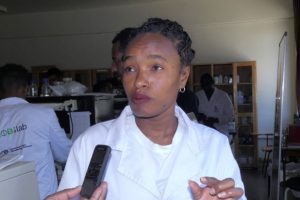
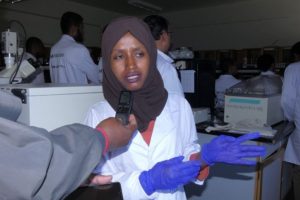
Among the trainees, Miss Alemnesh Bekele and Miss Zahar Gabi from the College of Agriculture and Environmental Sciences, School of Plant Sciences, said that they learned a lot about the practical and the procedures/protocols followed in the lab for the molecular activities.
The training improved their knowledge and skill in molecular biology and made them more confident, the trainees added.
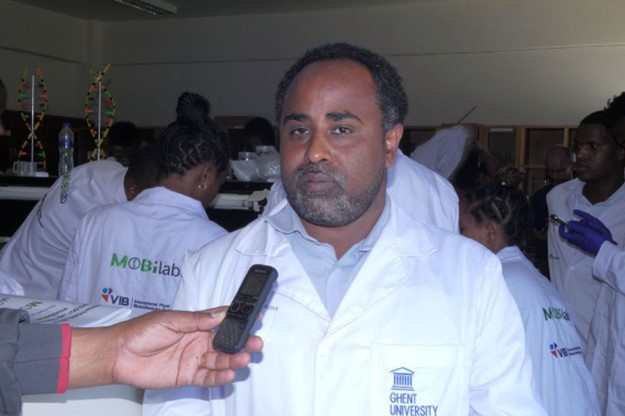
The other trainee, Dr. Bruk Abraha, Associate Professor of Veterinary Microbiology at the College of Veterinary Medicine, Haramaya University, said he acquired (i) advanced skills in the preparation of different working solutions used for molecular biology; (ii) skills in the use (operation) of PCR technology; (iii) skills and a comprehensive understanding of sequence alignment, gene annotation, primer design, and computer-based tools used in bioinformatics; and (iv) comprehensive understanding in the interpretations of molecular biological data.
Finally, the Dean of Haramaya University College of Agriculture and Environmental Science, Dr. Kedir Jemal, gave certificates to the trainees and emphasized that experts should apply the knowledge they have acquired.
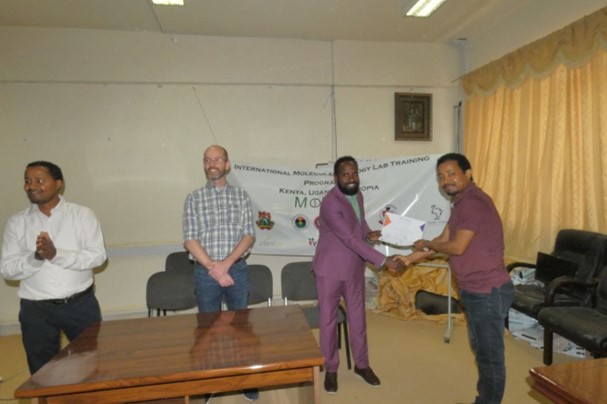
Dr. Kedir added that the trainees should work more diligently than before to benefit themselves, society, and their country in their future teaching and learning activities by increasing the knowledge and understanding they have gained during the training.
The Dean also expressed his gratitude to the team led by Drs. Marc Heijde from Ghent University for conducting a wonderful training.
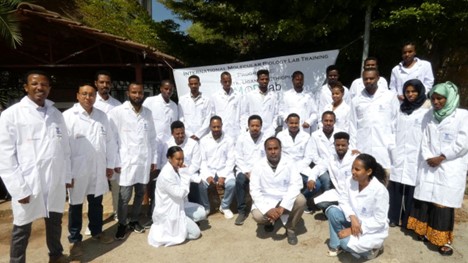
Reporter: Shemsedin Mohammad
Photographer: Tewodros Lishan
Haramaya University Public and International Relations Directorate
